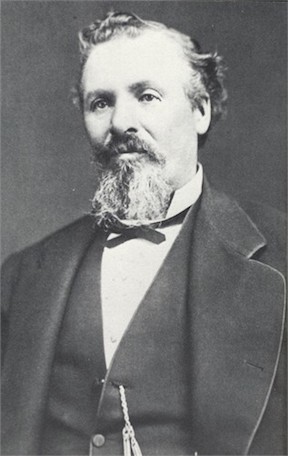Difference between revisions of "John Menzies Macfarlane"
(Created page with "300px|thumb|right '''John Menzies Macfarlane''' was a hymnwriter and choir director. He wrote the words and music to “Far, Far Away on...") |
|||
| Line 3: | Line 3: | ||
'''John Menzies Macfarlane''' was a hymnwriter and choir director. He wrote the words and music to “Far, Far Away on Judea’s Plains” (#212) and the music to “Dearest Children, God Is Near You” (#96), both included in the 1985 [[Hymns of The Church of Jesus Christ of Latter-day Saints (1985 book)|Hymns of The Church of Jesus Christ of Latter-day Saints]]. | '''John Menzies Macfarlane''' was a hymnwriter and choir director. He wrote the words and music to “Far, Far Away on Judea’s Plains” (#212) and the music to “Dearest Children, God Is Near You” (#96), both included in the 1985 [[Hymns of The Church of Jesus Christ of Latter-day Saints (1985 book)|Hymns of The Church of Jesus Christ of Latter-day Saints]]. | ||
| − | Macfarlane was born on October 11, 1833, in Stirling, Scotland. After he emigrated from Scotland, he settled in Cedar City, Utah Territory in 1853, where he taught school. He advanced to major of the 3rd battalion and later became adjutant to Major Isaac Haight in the 2nd battalion of the Utah Territorial Militia of Iron County. It is believed that he may have been involved in the 1857 attacks on an emigrant wagon train that became known as the [[Mountain Meadows | + | Macfarlane was born on October 11, 1833, in Stirling, Scotland. After he emigrated from Scotland, he settled in Cedar City, Utah Territory in 1853, where he taught school. He advanced to major of the 3rd battalion and later became adjutant to Major Isaac Haight in the 2nd battalion of the Utah Territorial Militia of Iron County. It is believed that he may have been involved in the 1857 attacks on an emigrant wagon train that became known as the [[Mountain Meadows massacre]]. Historians attribute the massacre “to a combination of factors, including war hysteria about a possible invasion of Mormon territory and Mormon teachings against outsiders, which were part of the Mormon Reformation period.”[https://en.wikipedia.org/wiki/Mountain_Meadows_Massacre] At John D. Lee’s trial in 1875, he was a county prosecuting attorney and district attorney. He testified briefly on collateral matters such as the whereabouts of various witnesses. |
In 1859 he moved to Toquerville and was the first postmaster. He also worked as surveyor and surveyed towns, fields, and canals. His crops failed, however, and he returned to Cedar City. He served as superintendent of schools in Iron County from 1866 to 1868. | In 1859 he moved to Toquerville and was the first postmaster. He also worked as surveyor and surveyed towns, fields, and canals. His crops failed, however, and he returned to Cedar City. He served as superintendent of schools in Iron County from 1866 to 1868. | ||
Revision as of 23:51, 26 July 2020
John Menzies Macfarlane was a hymnwriter and choir director. He wrote the words and music to “Far, Far Away on Judea’s Plains” (#212) and the music to “Dearest Children, God Is Near You” (#96), both included in the 1985 Hymns of The Church of Jesus Christ of Latter-day Saints.
Macfarlane was born on October 11, 1833, in Stirling, Scotland. After he emigrated from Scotland, he settled in Cedar City, Utah Territory in 1853, where he taught school. He advanced to major of the 3rd battalion and later became adjutant to Major Isaac Haight in the 2nd battalion of the Utah Territorial Militia of Iron County. It is believed that he may have been involved in the 1857 attacks on an emigrant wagon train that became known as the Mountain Meadows massacre. Historians attribute the massacre “to a combination of factors, including war hysteria about a possible invasion of Mormon territory and Mormon teachings against outsiders, which were part of the Mormon Reformation period.”[1] At John D. Lee’s trial in 1875, he was a county prosecuting attorney and district attorney. He testified briefly on collateral matters such as the whereabouts of various witnesses.
In 1859 he moved to Toquerville and was the first postmaster. He also worked as surveyor and surveyed towns, fields, and canals. His crops failed, however, and he returned to Cedar City. He served as superintendent of schools in Iron County from 1866 to 1868.
Erastus Snow encouraged him to move to St. George and form a choir there. In addition to the choir, he was a district judge and worked as a surveyor and builder. In 1888, he assisted in the founding of the academy in St. George that became the predecessor to Dixie State College.
He married Ann Chatterley in 1852. He also married Tillie Heyborne and Lizzie Adams and was the father of 26 children. During the anti-polygamy raid in the late 1880s, he went to Mexico with his third wife and years later, his second wife joined them. He returned to St. George in 1892 for medical help and died there on June 4.
